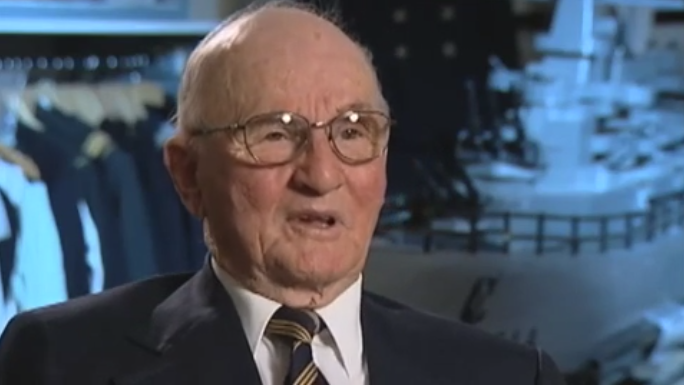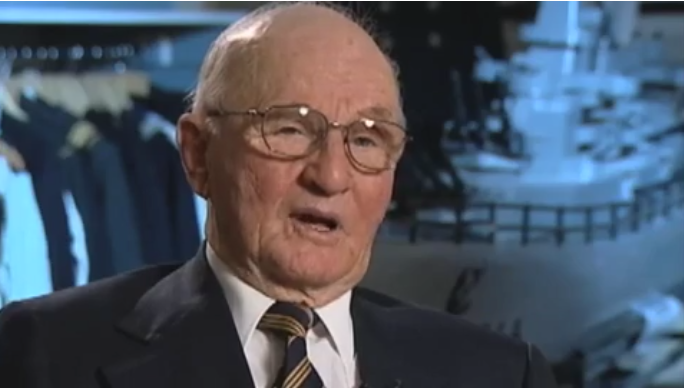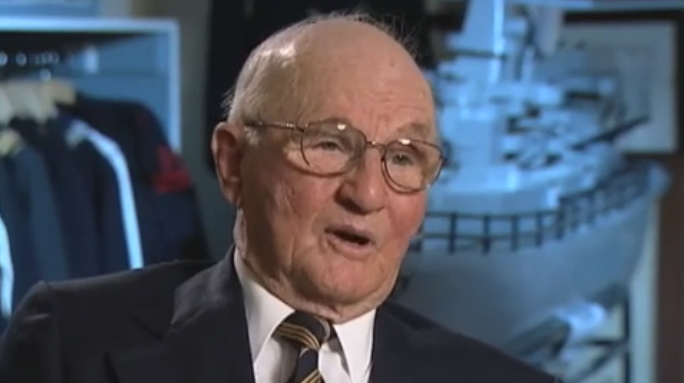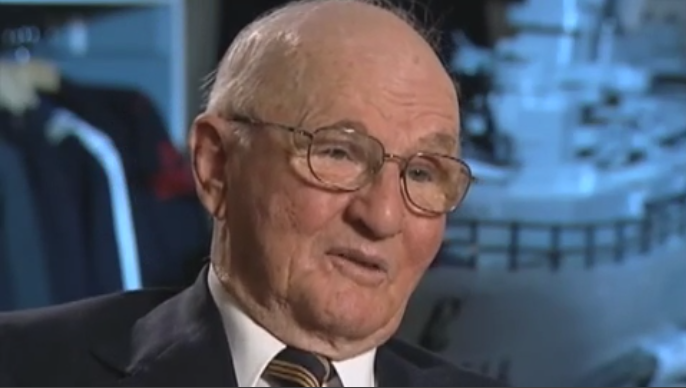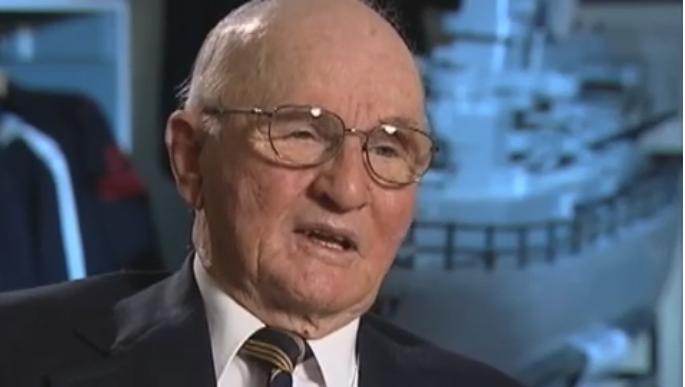They were good weapons
Heroes Remember
They were good weapons
Transcript
A lot of the equipment we had wasn't near as good as the German
equipment and, and like our, maybe you never heard of the old
Sten gun. It was, we used to call it the plumbers nightmare
and they made them in mass production and you could shake
the thing and it would go off, if, if you had a mag in there.
And it wasn't very accurate and the next time, in order to
keep it from on safety, you had to pull it back and a little
notch and put it in a notch and it was an awkward weapon.
Not very good at all, but it fired a few rounds and a lot of guys
got in trouble because of the Sten gun and even our rifle wasn't
near as good as the German rifle and things like that.
The one that I remember, probably as much as anything is
the Schmeizer. That's what you'd hear at night and it would
fire, I don't know, 300 rounds a minute. Just really terrific.
And they were good weapons. But we had..., and when it
comes to machine gun they had a belt fed machine gun and
we got one, one night and but our own Bren gun, it was good.
They got one upstairs. It was a good weapon. It was a good
weapon, yes. I think when they sent them into France with
those tanks, persuader tanks, they didn't have armour, enough
armour on them and the German would just knock them out.
Maybe 100 tanks in one day, you wouldn't believe it. No it just,
if you read up on it, it's just hard to believe that, that...
And the Germans, by that time they had their, I don't know what
they called it, the weapon, but the shells would bounce off the
German tanks, unless you hit them in a certain spot.
Our tanks weren't up, but then when we got the heavier tanks
and then the bigger guns like that 17 pounder, then we were
more equal. But I had a friend, Doc Williams, he was in the
5th Anti-tank and they used to take the tracks off vehicles that
were knocked out and put them around their tank, to give
them a little more armour protection and I guess it worked.
But no, I think the Germans had been producing that equipment
since 1930 and then they had a little edge on us.
And, but I think as the war went on,
we got better equipment, no question about it.
Description
Mr. MacDonald compares the quality of Canadian vs. German weaponry.
Clifford MacDonald
Mr. MacDonald was born near Hughton, Saskatchewan, on March 28, 1923. He left home at the age of 15, and worked at odd jobs until becoming an underage recruit in the army, 67th Battery at Rosetown, Saskatchewan. After completing gunnery training in England and Ireland, Mr. MacDonald spent some time on a Bofors gunnery crew in England's coastal defence system. He then became a gunner with the 5th Anti-tank Regiment, and was involved in forcing the German retreat from France, Belgium and Holland. After the war, Mr. MacDonald returned to Saskatchewan and purchased a farm under the Veterans Land Act. He has been a Legion member for more than 60 years.
Meta Data
- Medium:
- Video
- Owner:
- Veterans Affairs Canada
- Duration:
- 02:35
- Person Interviewed:
- Clifford MacDonald
- War, Conflict or Mission:
- Second World War
- Location/Theatre:
- Europe
- Battle/Campaign:
- Post D-Day
- Branch:
- Army
- Units/Ship:
- 5th Anti-tank Regiment
- Rank:
- Corporal
- Occupation:
- Gunner
Related Videos
- Date modified:



